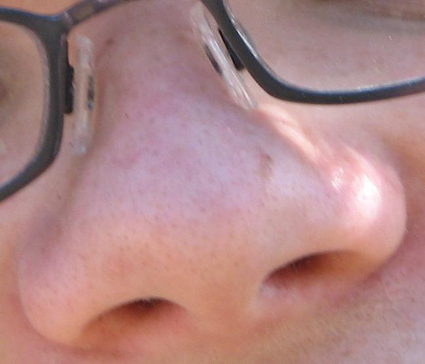
More women having a healthy breast removed
A small but growing number of women with breast cancer are choosing to have the unaffected breast removed in an effort to prevent a recurrence, researchers reported Monday.
Using data from New York State hospitals, the researchers found that between 1995 and 2005, the prevalence of preventive mastectomy among women with a history of cancer in one breast more than doubled.
The procedure was performed in about 2 percent of all women diagnosed with breast cancer in 1995 and 1996 — rising to just over 4 percent by 2005.
In contrast, there was only a small increase in preventive mastectomies among women who had no personal history of breast cancer but were considered at risk because of a strong family history of the disease.
The findings suggest that while the number of preventive mastectomies performed each year in New York was small, the procedure is becoming more common, the researchers report in the journal Cancer.
The more marked increase among women with a history of breast cancer raises some concerns, senior researcher Dr. Stephen B. Edge, of the Roswell Park Cancer Institute in Buffalo, told Reuters Health.
The central issue, he explained, is that there is no evidence that removing the unaffected breast improves long-term survival.
While preventive mastectomy likely cuts the chances of cancer developing in the second breast, the ultimate impact on survival is a more complicated matter.
Edge noted that among women who are not at high genetic risk of breast cancer — about 95 percent of all breast cancer patients — the odds of developing cancer in the second breast are between 10 percent and 20 percent over 20 to 30 years.
So in deciding whether to have a preventive mastectomy, women need to consider the uncertain long-term benefits and the risk of complications — which include bleeding, infection and nerve damage.
“Women need to be carefully counseled on the issues of the risks of developing a second cancer, and the largely minimal or no impact this may have on their survival,” Edge said.
The study findings are based on data from hospital discharge records and the New York State cancer registry. Of the nearly 70,000 women who underwent mastectomies between 1995 and 2005, 9 percent — 6,275 women — had one for preventive reasons.
Of women having a preventive mastectomy, 81 percent had a history of breast cancer. The number of these procedures rose from 295 in 1995 to 683 in 2005.
healthy breast , healthy breast Health, healthy breast Health Latest, healthy breast Health Information, healthy breast Health information, healthy breast Health Photo,healthy breast for Weight Health photo, healthy breast Health Latest, healthy breast Health latest, healthy breast for Weight Health Story, healthy breast Video, healthy breast video, healthy breast Health History, healthy breast Health history, healthy breast over Picture, history, healthy breast Asia, healthy breast asia, healthy breast Gallery, healthy breast for Weight gallery, healthy breast Photo Gallery, healthy breast Picture, healthy breast picture, healthy breast Web, Malaysia Health, web Health, web Health picture, video photo, video surgery, gallery, laparoscopy, virus, flu, drug, video, Health Health, calories, photo, nutrition, health video, symptoms, cancer, medical, beating, diet, physical, Training, organic, gym, blister, exercise, weightloss, surgery, spiritual, eating, tips, skin, operation, bf1




